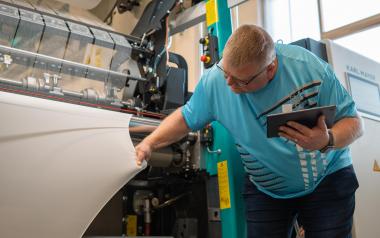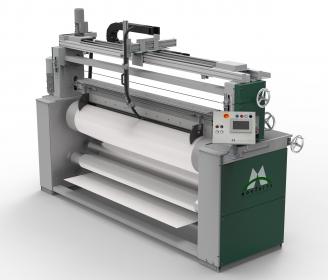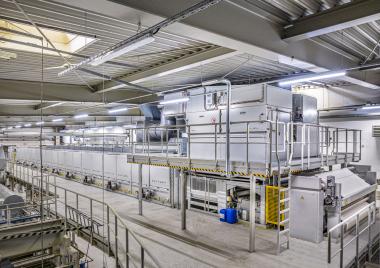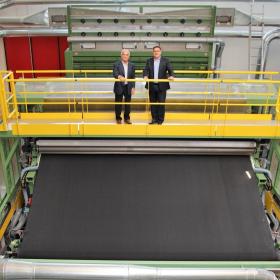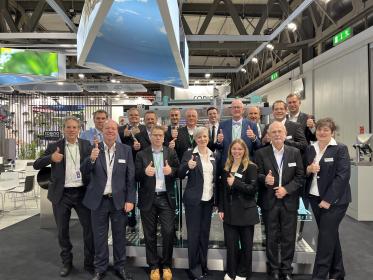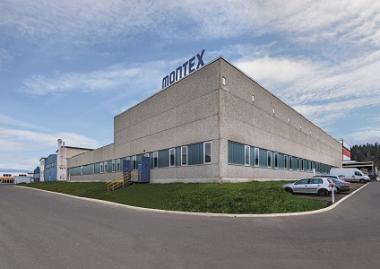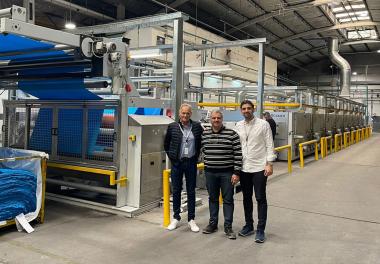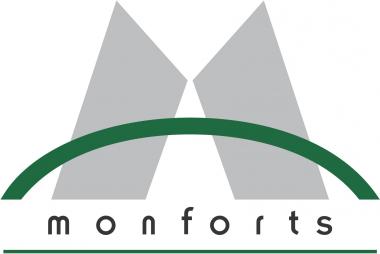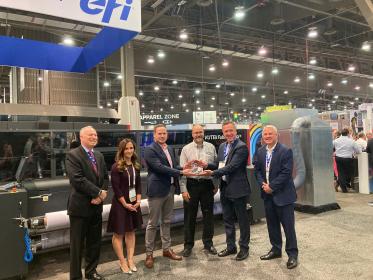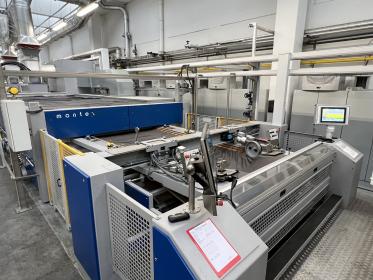Tintoria Finissaggio 2000 invests in Mahlo's automatic straightening system
Tintoria Finissaggio 2000 is one of the most important Italian companies in the textile finishing sector. Founded in 1973 in Masserano in the textile district of Biella, the company offers the complete range of dyeing of all types of fibres, finishing, digital printing, lamination and membrane lining. These processes are used to give fabrics certain properties, such as colour, pattern, softness, shine or waterproofness.
At Tintoria Finissaggio 2000, customers benefit from the fact that all processes are handled under one roof, from design support to the finishing of fabrics, combining decades of experience with the new possibilities of lamination and digital printing. The dyeing plant in Masserano is a state-of-the-art facility that fulfils the strictest environmental standards. In general, Tintoria Finissaggio 2000 continuously invests in state-of-the-art technologies and production facilities in order to achieve high-quality results while ensuring sustainable production processes.
Tintoria Finissagio 2000 also focused on innovation when equipping a new stenter frame. The company opted for the latest development from German machine manufacturer Mahlo GmbH + Co. KG: the Orthopac RXVMC-20 automatic straightening system. The new straightening concept is specially designed for processing textiles with high distortion dynamics, i.e. textiles with highly variable distortion. Two individually controlled and driven straightening modules with a total of three bow and four skew rollers ensure that bow and skew distortions are corrected in small steps. The control concept is also new. A scanner group at the infeed of the straightener detects distortions even before they reach the correction rollers. This means that the rollers are brought directly into position and the fabric is corrected from the very first centimetre. A scanner group at the outfeed also recognises any residual distortion, which is then corrected on the second straightening module.
Tintoria Finissaggio 2000 Mahlo GmbH & Co. KG Mahlo straightening concept textile finishing Textile Dyeing
Mahlo GmbH + Co. KG





